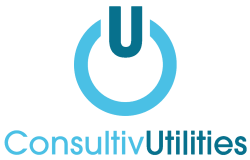Utility solutions for UK retailers
Save your business time and money. Let us do the leg work and compare your retail utility rates today
Employing an average of 3 million people across more than 235,000 businesses, the retail sector has radically transformed over the last decade. From changing consumer habits to energy price rises and supply chain issues – retail businesses have faced it all.
We know that running a retail business is challenging enough without the added stress of managing utility costs. Lean on our experts to help streamline your utility management and costs.
Whether you’re a single site or a large, multi-site retail business our experts can use their extensive industry knowledge to help you navigate your unique business challenges and priorities.
Ready to start saving on your business utilities?
Why choose Consultiv?
We believe retailers should focus on delivering exceptional service to their customers, not worrying about utility management. Our expertise lies in finding utility contracts tailored to your specific needs. With access to a wide network of trusted suppliers, we take the time to understand your business inside and out, providing your business with competitive quotes. Let us handle your utility sourcing, so you can concentrate on what matters most – your customers
Frequently Asked Questions
Is carbon offsetting greenwashing?
Carbon offsetting can be seen as greenwashing if it creates a false impression of environmental responsibility without real emission reductions. Companies relying solely on offsets without meaningful changes risk this accusation. However, when combined with genuine efforts to reduce emissions, improve efficiency, and implement sustainable practices, offsetting can be a legitimate tool. The key is transparency, accountability, and a commitment to measurable carbon footprint reductions.
What are the most common carbon offset projects?
Carbon offsetting can be seen as greenwashing if it creates a false impression of environmental responsibility without real emission reductions. Companies relying solely on offsets without meaningful changes risk this accusation. However, when combined with genuine efforts to reduce emissions, improve efficiency, and implement sustainable practices, offsetting can be a legitimate tool. The key is transparency, accountability, and a commitment to measurable carbon footprint reductions.
How much do carbon offsets cost?
Carbon offsetting can be seen as greenwashing if it creates a false impression of environmental responsibility without real emission reductions. Companies relying solely on offsets without meaningful changes risk this accusation. However, when combined with genuine efforts to reduce emissions, improve efficiency, and implement sustainable practices, offsetting can be a legitimate tool. The key is transparency, accountability, and a commitment to measurable carbon footprint reductions.
What is the Voluntary Carbon Market (VCM)?
Carbon offsetting can be seen as greenwashing if it creates a false impression of environmental responsibility without real emission reductions. Companies relying solely on offsets without meaningful changes risk this accusation. However, when combined with genuine efforts to reduce emissions, improve efficiency, and implement sustainable practices, offsetting can be a legitimate tool. The key is transparency, accountability, and a commitment to measurable carbon footprint reductions.
How many trees does it take to offset 1 tonne of carbon?
Carbon offsetting can be seen as greenwashing if it creates a false impression of environmental responsibility without real emission reductions. Companies relying solely on offsets without meaningful changes risk this accusation. However, when combined with genuine efforts to reduce emissions, improve efficiency, and implement sustainable practices, offsetting can be a legitimate tool. The key is transparency, accountability, and a commitment to measurable carbon footprint reductions.
Is carbon offsetting regulated in the UK?
Carbon offsetting can be seen as greenwashing if it creates a false impression of environmental responsibility without real emission reductions. Companies relying solely on offsets without meaningful changes risk this accusation. However, when combined with genuine efforts to reduce emissions, improve efficiency, and implement sustainable practices, offsetting can be a legitimate tool. The key is transparency, accountability, and a commitment to measurable carbon footprint reductions.
Support
Consultiv Utilities can help you get the most out of your business gas and electricity in the long run, by using our expertise to meet your requirements. Our tendering services are tailored in accordance with your needs and goals.
Support
Get In Touch
You can unsubscribe from marketing communications at any time. You can find out more about how to unsubscribe in our Privacy Policy.










